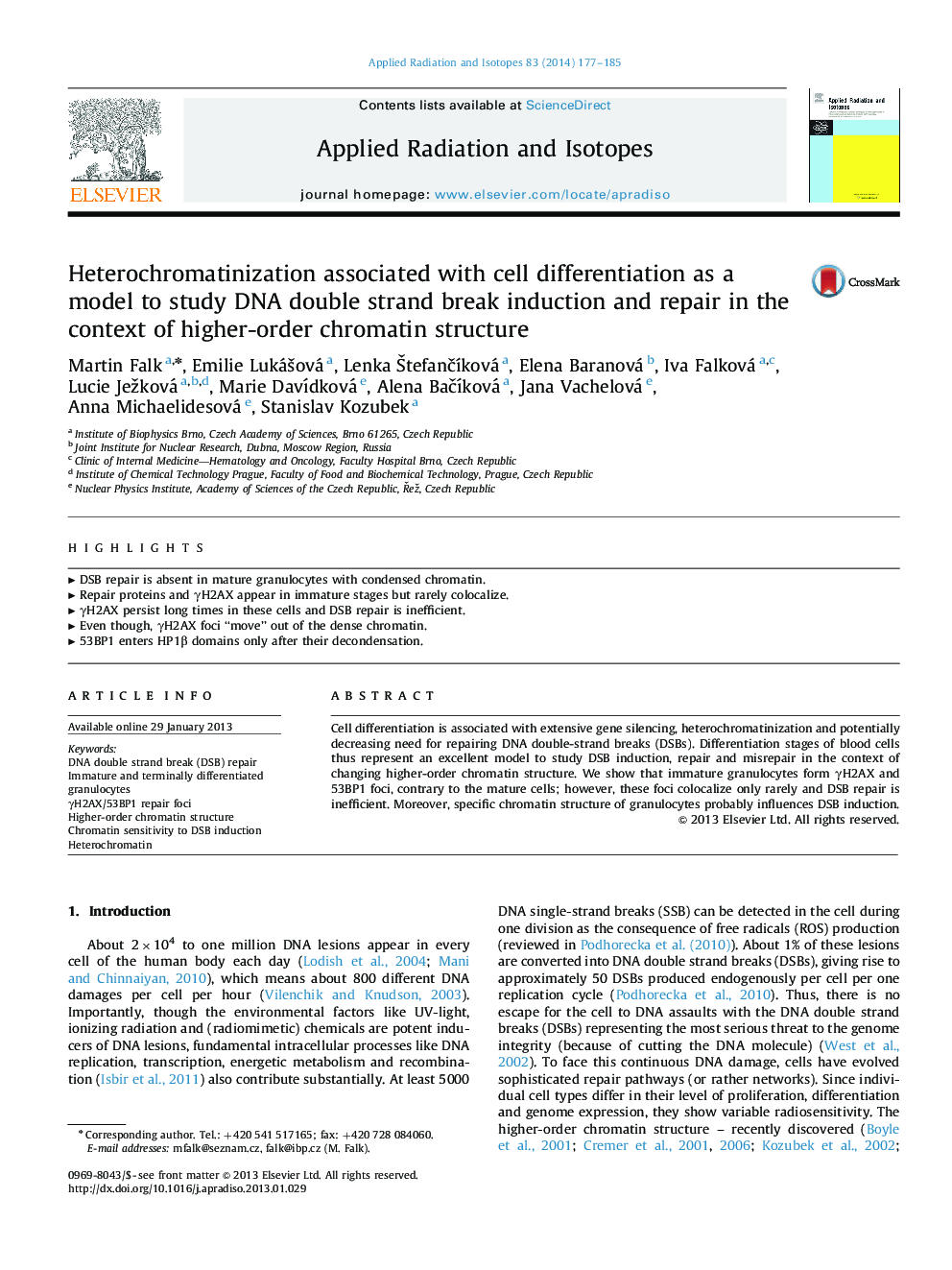| کد مقاله | کد نشریه | سال انتشار | مقاله انگلیسی | نسخه تمام متن |
|---|---|---|---|---|
| 1876094 | 1041980 | 2014 | 9 صفحه PDF | دانلود رایگان |

Cell differentiation is associated with extensive gene silencing, heterochromatinization and potentially decreasing need for repairing DNA double-strand breaks (DSBs). Differentiation stages of blood cells thus represent an excellent model to study DSB induction, repair and misrepair in the context of changing higher-order chromatin structure. We show that immature granulocytes form γH2AX and 53BP1 foci, contrary to the mature cells; however, these foci colocalize only rarely and DSB repair is inefficient. Moreover, specific chromatin structure of granulocytes probably influences DSB induction.
► DSB repair is absent in mature granulocytes with condensed chromatin.
► Repair proteins and γH2AX appear in immature stages but rarely colocalize.
► γH2AX persist long times in these cells and DSB repair is inefficient.
► Even though, γH2AX foci “move” out of the dense chromatin.
► 53BP1 enters HP1β domains only after their decondensation.
Journal: Applied Radiation and Isotopes - Volume 83, Part B, January 2014, Pages 177–185